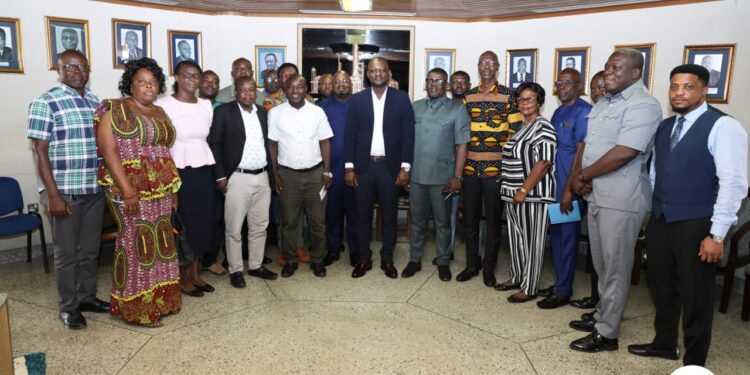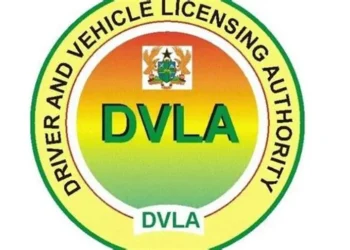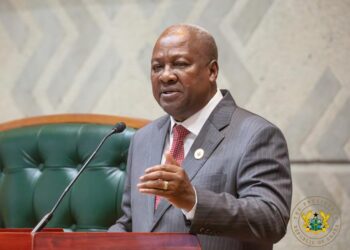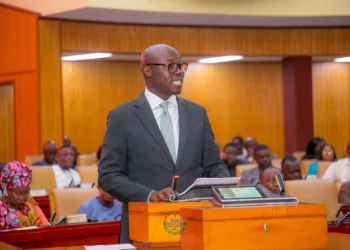National Premix Fuel Committee, on Monday, July 7, visited Tema Oil Refinery Ltd. (TOR) as part of efforts to strengthen collaboration in the production and distribution of premix fuel across the country.
The delegation, led by Committee Chairman Nelson Dafeamekpor, included key stakeholders from the Ministry of Energy, Ministry of Fisheries and Aquaculture Development, the Fisheries Commission, the National Inland Canoe Operators, the National Fisheries Association of Ghana (NAFAG), and other relevant institutions.
The stakeholder working visit was designed to provide firsthand insight into TOR’s operations and to foster alignment on measures to improve efficiency, transparency, and regulatory oversight in the premix fuel value chain.
In his welcome remarks, TOR’s Acting Managing Director, Edmond Kombat, Esq expressed appreciation to the Committee for recognizing the refinery’s critical role in the sector.
He reaffirmed TOR’s commitment to maintaining high standards in quality assurance, accountability, and stakeholder partnership in support of national development.

Addressing the gathering, Mr. Dafeamekpor outlined several pressing issues affecting the sector — including frequent fuel shortages, instances of product diversion, irregular supply to end users, and challenges in fuel tracking.
He called for TOR’s technical input and proposed potential reforms such as a permit system to improve regulation and monitoring.
Management of TOR, during a briefing on the refinery’s production processes explained that premix fuel is produced through a controlled blend of gasoline and condensate, ensuring quality and consistency.
They clarified that once the fuel leaves the refinery, external regulatory bodies take over oversight.
However, the refinery maintains strict internal controls and transparency throughout the loading process, which is conducted on a first-come, first-served basis.
No product exits TOR without undergoing rigorous multi-agency verification.
Representatives from National Security, the National Petroleum Authority (NPA), Ghana Customs, and Rock Africa are all required to jointly inspect and sign off on each consignment.
Mr. Kombat, Esq also outlined future projects aimed at improving efficiency, including the construction of new storage tanks to enhance supply stability and the modernization of TOR’s loading gantry through a competitive procurement process.
He added that a new chit system is also being introduced to further improve transparency in loading operations.
Mr. Dafeamekpor, in his closing remarks, announced a series of proposed policy interventions to address longstanding issues in the sector. These include:
- Blacklisting of Oil Marketing Companies (OMCs) involved in product diversion or fuel losses,
- Unique branding of premix tankers to enhance traceability,
- Implementation of a nationwide permit system for distributors,
- Volume reconciliation between loading and delivery points.
He praised TOR’s technical leadership and its continued dedication to national development.





































